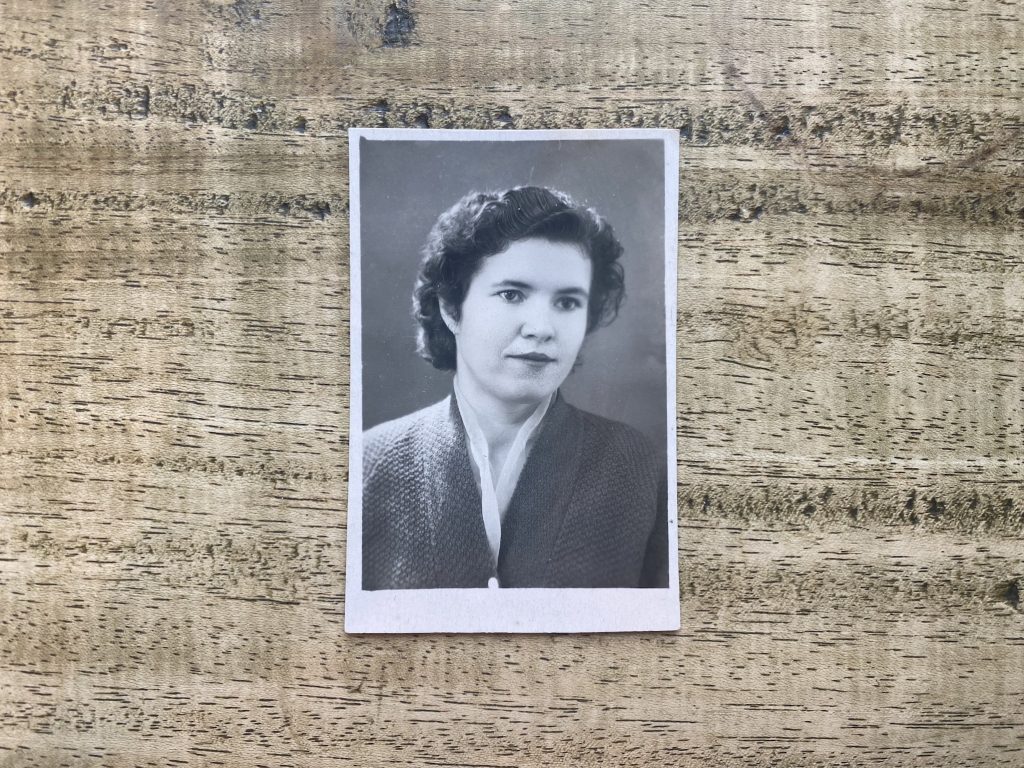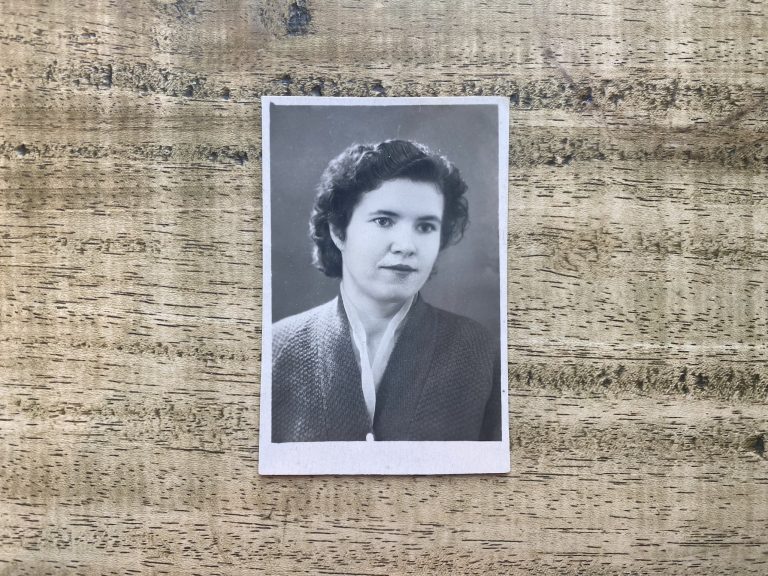I'd be lying if I said the war disturbed my habits. It's tempting to pretend that she turned a shy art scholar into a brave military correspondent overnight. But it was more likely to be my father's asthma, my grandmother's dementia, my uncle's poor eyesight, or even the cockroach that crept under the radar and darkened my daily life.
To deal with everything that happens, one must start from scratch.
Inherited memory
Being born into a family with relatives who knew about concentration camps has repercussions. Their suffering determines your future to some extent: a special kind of tingling, conversational liminality, and chronic illness that you acquire from childhood. In hindsight, my humble story of self-improvement, coming to certain conclusions (and discarding others), was stressful but predictable.. Could I have avoided this and understood it in advance?
My love affair with writing began when I was a teenager as an escape from a vulgar environment. The mundane nature of Ukraine, which has absorbed more riots, unrest, free fall and dismemberment than any other European country in the past 30 years, is somewhat poetic. However, at the time, I saw it as a boring, trivial, indisputable state of nature. Writing texts and essays became an easy way to immerse myself in charged environments with greater meaning, such as the Dionysian mysteries, the One Thousand and One Nights, or the world of Shakespeare – in short, references to things I had never seen and places I had never been. It is for this very specific, though unfounded, reason that they seemed to have a higher nature of greater importance, exaggerating any purges, captures, and hostilities that were rife in my family's past.
Perhaps it was my father's incomprehensible muttering that made me drop all the words instead of creating scintillating writing. A 73-year-old Soviet engineer, passionate about physics and mathematics, tends to believe that the only true knowledge is number crunching, and becomes mysteriously ignorant when it comes to his health. When the Soviet Union collapsed, he was invited to the United States, but decided to stay in his small room in an old, unheated factory, covering his computer with a jacket until the factory facilities stopped working. He has repeatedly described his decision as “virtuous” and “just.” Wasn't this the same justification you used for staying in Ukraine? However, the choice he made most likely led to him developing severe asthma. Heavy medications for such conditions lead to long-term kidney disease which can contribute to consciousness becoming dim. This was the exact state in which I, an aspiring author, found him in bed a few years ago.
While he bore the brunt of his work habits, which were not as virtuous as they seemed, My grandmother was slowly dying. We managed to get her out of Nikopol, a Ukrainian city that was repeatedly bombed, almost two years before the war. Thrown out of her desperate but precious routine, she may wander from room to room unable to remember our names, but she can vividly tell the story of how a huge insect climbed onto her mother's face as she died in an open freight train car on the highway. The road to Nazi Germany. I used to hear this story at least once a year when I was sent to my grandmother's cabin for the summer, but it wasn't until I was older that its meaning occurred to me—partly because of a childhood ability to dismiss all scary tales as mere late-night occurrences. Entertainment, partly because the horrific memory was so mixed up with all the stories she was constantly conjuring up with, such as her own as a beautiful, curvy young woman pouring cold water from a balcony on her unfortunate admirers.

Grandmother Olena Mihashko, 1968, Crimea. Image courtesy of the author
Needless to say, she eventually married one of these fans. A relative died during World War II and she had to eat. Out of this dark association came my uncle, whom she never loved, despite being an only child who never left home. At the age of five, he was incompetently treated for polio, which resulted in a limp, leaving him nearly blind. His mother scolded him for almost everything, preferring that he not resemble her husband as much as he did. As a result, my uncle became depressed and narrow-minded. He never succeeded in getting a girl, and instead accompanied my grandmother in an unhealthy Freudian dependence. After you joined our family home, He was basically a helpless extension of my grandmother and no one to hold on to himself.
The body and its parts
There are a multitude of ways one's adolescence can end, and mine ended with the need to be the breadwinner. Circumstances that I had once considered banal, simple, and ghostly broke down my Soviet bedroom door, turning my early twenties upside down; Being artistic was the last thing I could think about.
When medical test results are your main reading material, you discover that facts – which were not previously part of your language – become of great importance. You quickly learn that the poop you wash off your parents' ankles has no literary equivalent. Don't try to reveal any hidden meaning of the scene; The actual event transcends any aesthetic narrative. The amount of new knowledge, both practical and emotional, is so huge that you begin to perceive the arts as an accessory, a crutch for those who live relatively carefree lives. The assumption that art can convey reality is preposterous.
After all, it might have been my father's illness, or my grandmother's dementia, or a cockroach that had crept into the apartment one of those summers when things weren't so good. right Which prevented me from becoming a writer. A ripe new world of blood, flesh, death, appearing at an unsafe distance, silences me too It made me feel ashamed and embarrassed, full of resentment and longing for any form of writing that wasn't directly intended to help.
Constant dreams
Years later, she comfortably turned to journalism. After visiting the first evacuated towns and villages as a correspondent, I was finally able to extricate myself from the cowardly thinker and the role of detached researcher – the last person to be saved in a shipwreck. The desire to defend misuse of justice, coupled with a sense of physical urgency, was there. Thank God, I used to tell myself that I could not bear the invasion while I had a small collection of poetry in my hand. What a miserable picture.
It was only in some breaches of my new military routine that things like politeness, or the emotion associated with it, began to creep in. It could be a gentle landscape I noticed briefly on a ruined city treasure, as I stumbled upon it, dawn or dusk in my dreary neighbourhood, a phrase escaping from my never-before-attractive bookshelf. It was even more intense after we survived a series of attacks in March while watching a Wong Kar Wai movie Chongqing Express. As desperate as it seemed at the time and astonishing still, the dream of wandering past lemon rooms, late-night stops and gaudy cheap hotels offers a remote paradise.
After all, why would we suddenly underestimate the importance of a dirty wall spot? It looks like a beautiful cloud when you listen to the distant explosions. So, while I strongly advocated any form of artistic detachment, in those painful days I surreptitiously fell in love with dreaming and writing for the first time since childhood. I was captivated by the idea of being useful, useful, and reveling in the irrefutable justification for my existence; I saw no sense in making up words, or, what's more, in pretending that they were important, because they could not heal the wounded body or restore the light. But, at the same time, I was very drawn to the idea of taking a step into any kind of dimension that wasn't mundane or real. I dreamed of standing in the middle of streets in places as far away as Seoul and Tampa, the city lights of 1990s South Korea, and the National Park in Singapore. Surprisingly, what I remember most about those first weeks are film footage of Korean cyclists, some of my vivid mid-morning dreams, things I never actually saw, and cities I never visited.. Somehow, despite all the disdain I felt for meditation, it became the one thing I deeply enjoyed, the only thing that helped me stay in my body.
“Who has the privilege of not knowing?” is running through my mind as I write this article. Who has the privilege of sticking to another topic that is less shocking and more seductive? Who has the right to ignore the latest breaking news and stop at Gilles Deleuze, Renaissance art, the street vendors of the past, the rising prices of Manhattan cocktails, issues of semiotics, and the safe setting of a debate between you and a 'controversial topic'? Do I envy them enough to hate them?
Despite the gap between the real Illusionally useless as it may be (though never to either one or the other), the idea of writing as a life-shaping endeavor is no longer on my mind. I think you can honestly call the words a “major contribution” until aerial missiles, pharmacy receipts, motley insects, or anything else begin to shape your future path more than all the books you have ever read. However, dreams, no matter how useless they may seem, will always find a way to continue.
This article first appeared in Eurozine's Swedish-language partner magazine Glänta. The above is an edited version of the original English text.

